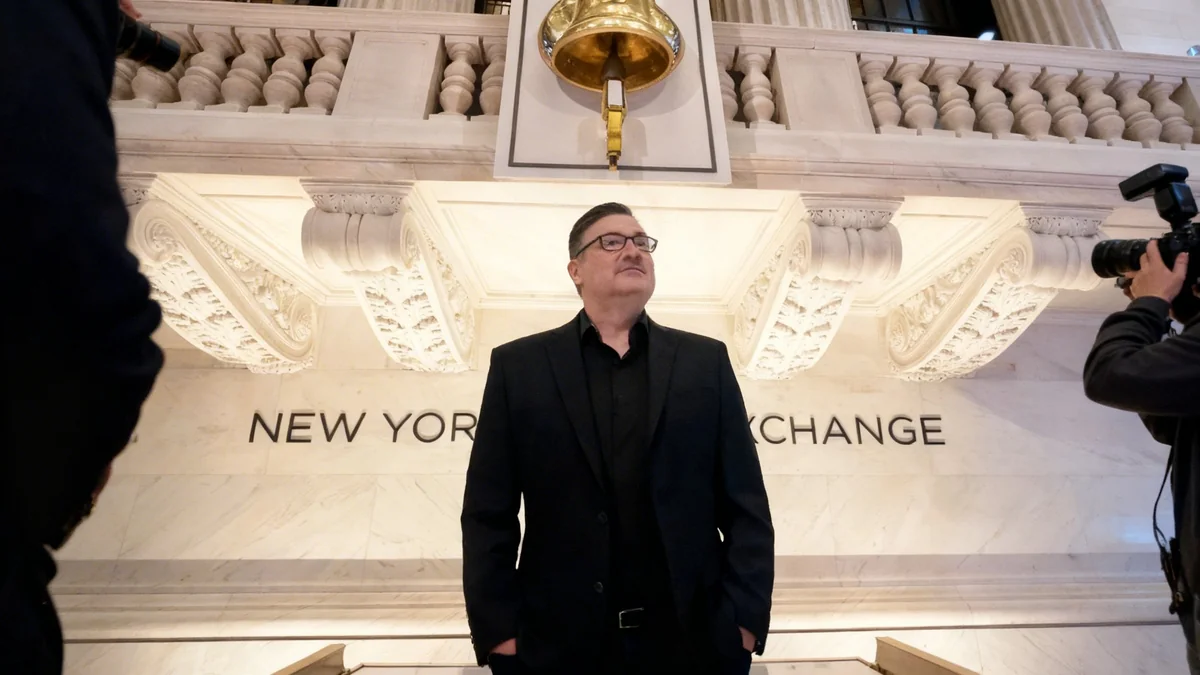Real estate giant Zillow is the subject of a class-action lawsuit filed in federal court, which alleges the company's agent referral programs mislead homebuyers and artificially inflate real estate commissions. The complaint claims that Zillow's system directs consumers to affiliated agents who pay Zillow substantial fees, ultimately driving up the final cost of homes.
The lawsuit, filed on September 19 in the U.S. District Court for the Western District of Washington, contends that these practices violate consumer protection and real estate settlement laws. Zillow has stated that the complaint misrepresents its business and has pledged to defend itself against the claims.
Key Takeaways
- Zillow is facing a class-action lawsuit over its Premier Agent and Flex agent referral programs.
- The suit alleges the "contact agent" button on listings deceptively connects buyers with Zillow-affiliated agents instead of the property's listing agent.
- It claims Zillow's "Flex" agents pay up to 40% of their commission back to Zillow, a fee not disclosed to consumers.
- The lawsuit argues this fee structure keeps commissions high and inflates home purchase prices.
- Zillow denies the allegations, stating it provides consumers with a choice of representation.
Lawsuit Alleges Deceptive Agent Connection Practices
The legal action centers on how Zillow connects potential homebuyers with real estate agents through its popular online platform. The plaintiff in the case, Alucard Taylor, claims that when he used the "contact agent" button on a property listing in July 2022, he was led to believe he was contacting the agent responsible for selling that specific home.
Instead, the lawsuit states, he was connected with an agent participating in Zillow's referral network. These agents are part of the company's Premier Agent or Flex programs, which generate revenue for Zillow.
According to the complaint, this process is misleading. It argues that buyers are not clearly informed that they are being paired with an agent who has a financial relationship with Zillow, rather than the seller's representative.
The Role of the 'Touring Agreement'
After being connected with a Zillow-affiliated agent, consumers are allegedly prompted to sign a "Touring Agreement." This document is presented as a short-term, non-exclusive contract that allows an agent to show properties to a buyer.
The lawsuit claims this agreement is deceptive because it describes the agent's services as "free." However, if the home purchase is completed, the agent receives a standard commission, which is paid from the proceeds of the sale. The filing argues that this cost is ultimately factored into the home's price, meaning the service is not truly free for the buyer.
Understanding Zillow's Agent Programs
Zillow's business model relies heavily on its agent referral programs. The Premier Agent program allows agents to pay for advertising and lead generation in specific zip codes. The Flex program is a performance-based model where agents do not pay upfront but instead pay Zillow a percentage of their commission upon closing a sale.
Financial Allegations and Commission Structures
A central claim in the lawsuit involves the fees associated with Zillow's "Flex" program. The complaint alleges that agents in this program must pay Zillow a fee of up to 40% of their total commission after a sale is finalized.
This significant fee, the lawsuit contends, is never disclosed to the homebuyer or the seller. The lack of transparency is a key point of the legal challenge.
Up to 40%: The lawsuit claims that Zillow Flex agents are required to pay the company a referral fee that can be as high as 40% of their earned commission from a closed real estate transaction.
Impact on Commissions and Home Prices
The lawsuit argues that this fee structure creates a system that keeps real estate commissions artificially high. Because a Zillow-affiliated agent has to give a large portion of their earnings to Zillow, they have little incentive or ability to negotiate a lower commission rate.
The filing states that after paying Zillow and their brokerage firm, an agent's effective commission might be as low as 1%. This pressure forces them to maintain a higher overall commission, typically around 6% of the sale price, which is split between the buyer's and seller's agents.
This rigidity, the suit claims, directly harms consumers. "Sellers are stuck with paying 6% commission (or more)... thereby increasing the purchase price of the home for the buyer," the filing states. The argument is that if buyers could more easily connect with listing agents directly, they might be in a better position to negotiate a lower sale price, as the seller would not have to pay a separate buyer's agent commission.
Legal Violations and Lawsuit Demands
The complaint accuses Zillow of violating federal and state laws, including the Washington Consumer Protection Act and the Real Estate Settlement Procedures Act (RESPA). RESPA includes provisions designed to prevent undisclosed referral fees or kickbacks in real estate transactions.
The lawsuit seeks to represent a nationwide class of consumers. This includes anyone in the U.S. who bought a home listed on Zillow between September 19, 2021, and the present while being represented by a Zillow-affiliated agent.
The plaintiffs are requesting several outcomes from the court:
- Financial Damages: Compensation for consumers who allegedly overpaid for homes.
- Disgorgement of Profits: Requiring Zillow to give up profits earned through these alleged practices.
- Injunctive Relief: A court order to stop Zillow from continuing the challenged business practices.
Zillow's Official Response
Zillow has strongly refuted the claims made in the lawsuit. In a statement provided to the media, a company spokesperson addressed the allegations directly.
“This complaint fundamentally misrepresents how Zillow operates and the value we’ve delivered to buyers, sellers and real estate professionals for nearly two decades. Contrary to its claims, we stand by our long held belief that buyers and sellers deserve to have the choice to work with an agent who is committed to their best interests and only represents them. We will vigorously defend ourselves against these claims.”
The company's position emphasizes consumer choice and the importance of having dedicated representation for both buyers and sellers in a real estate transaction. The case will now proceed through the federal court system.





